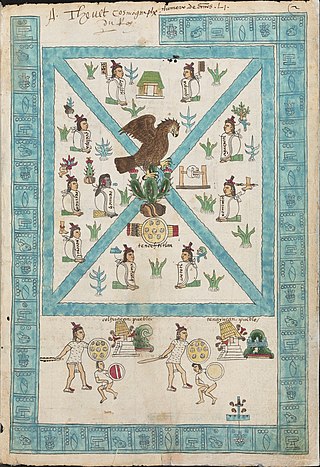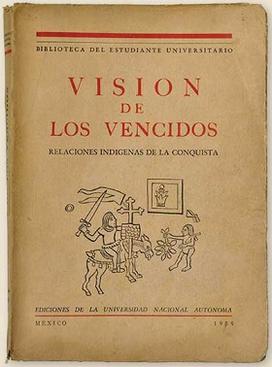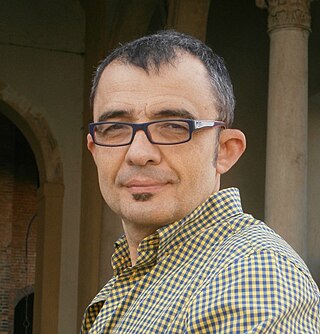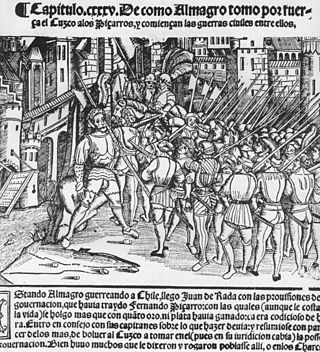Transculturation is a term coined by Cuban anthropologist Fernando Ortiz in 1940 to describe the phenomenon of merging and converging cultures. Transculturation encompasses more than transition from one culture to another; it does not consist merely of acquiring another culture (acculturation) or of losing or uprooting a previous culture (deculturation). Rather, it merges these concepts and instead carries the idea of the consequent creation of new cultural phenomena (neoculturation) in which the blending of cultures is understood as producing something entirely new.

Gonzalo Jiménez de Quesada y Rivera, also spelled as Ximénez and De Quezada, was a Spanish explorer and conquistador in northern South America, territories currently known as Colombia. He explored the territory named by him New Kingdom of Granada, and founded its capital, Santafé de Bogotá. As a well-educated lawyer he was one of the intellectuals of the Spanish conquest. He was an effective organizer and leader, designed the first legislation for the government of the area, and was its historian. He was governor of Cartagena between 1556 and 1557, and after 1569 he undertook explorations toward the east, searching for the elusive El Dorado. The campaign didn't succeed and Jiménez then returned to New Granada in 1573. He has been suggested as a possible model for Cervantes' Don Quixote.

Miguel León-Portilla was a Mexican anthropologist and historian, specializing in Aztec culture and literature of the pre-Columbian and colonial eras. Many of his works were translated to English and he was a well-recognized scholar internationally. In 2013, the Library of Congress of the United States bestowed on him the Living Legend Award.

Mexicans are the citizens and nationals of the United Mexican States. The Mexican people have varied origins with the most spoken language being Spanish, but many also speak languages from 68 different Indigenous linguistic groups and other languages brought to Mexico by expatriates or recent immigration. In 2020, 19.4% of Mexico's population identified as Indigenous. There are currently about 12 million Mexican nationals residing outside Mexico, with about 11.7 million living in the United States. The larger Mexican diaspora can also include individuals that trace ancestry to Mexico and self-identify as Mexican but are not necessarily Mexican by citizenship. The United States has the largest Mexican population in the world after Mexico at 37,186,361 in 2019.

In Hispanic America, criollo is a term used originally to describe people of full Spanish descent born in the viceroyalties. In different Latin American countries, the word has come to have different meanings, mostly referring to the local-born majority. Historically, they have been misportrayed as a social class in the hierarchy of the overseas colonies established by Spain beginning in the 16th century, especially in Hispanic America. They were locally-born people–almost always of Spanish ancestry, but also sometimes of other European ethnic backgrounds.

Aztec codices are Mesoamerican manuscripts made by the pre-Columbian Aztec, and their Nahuatl-speaking descendants during the colonial period in Mexico.

Jacinta Escudos, born in San Salvador, is a writer whose body of work includes novels, short stories and poetry.

The Broken Spears: The Aztec Account of the Conquest of Mexico is a book by Mexican historian Miguel León-Portilla, translating selections of Nahuatl-language accounts of the Spanish conquest of the Aztec Empire. It was first published in Spanish in 1959, and in English in 1962. The most recent English edition was published in 2007 (ISBN 978-0807055007).
Hispanicization refers to the process by which a place or person becomes influenced by Hispanic culture or a process of cultural and/or linguistic change in which something non-Hispanic becomes Hispanic. Hispanicization is illustrated by spoken Spanish, production and consumption of Hispanic food, Spanish language music, and participation in Hispanic festivals and holidays. In the former Spanish colonies, the term is also used in the narrow linguistic sense of the Spanish language replacing indigenous languages.
Postcolonialism is the critical academic study of the cultural, political and economic consequences of colonialism and imperialism, focusing on the impact of human control and exploitation of colonized people and their lands. The field started to emerge in the 1960s, as scholars from previously colonized countries began publishing on the lingering effects of colonialism, developing a critical theory analysis of the history, culture, literature, and discourse of imperial power.

Various types of visual arts developed in the geographical area now known as Mexico. The development of these arts roughly follows the history of Mexico, divided into the prehispanic Mesoamerican era, the colonial period, with the period after Mexican War of Independence, the development Mexican national identity through art in the nineteenth century, and the florescence of modern Mexican art after the Mexican Revolution (1910-1920).
Djelal Kadir is the Edwin Erle Sparks Professor of Comparative Literature at Pennsylvania State University, University Park, where he teaches literatures of the Americas, modernism, postmodernism, world literature, and classical and modern theory, and where he has been the recipient of departmental teaching awards and the College Distinguished Service Medal. He has published more than one hundred articles and is the author and editor of a dozen books on the Americas, globalization, world literature, postcolonialism, modernism and literary theory as well as editor of more than twenty special issues of literary periodicals. Kadir’s own poetry and scholarly works have been translated into Greek, Polish, Turkish, French, Arabic, and Spanish.
Desiderio Hernández Xochitiotzin was a Mexican artist best known for his large-scale mural work inside the State Government Palace in the state of Tlaxcala, Mexico, the last large scale mural of the Mexican muralism movement.

Juan Vicente Aliaga is a Spanish art critic who has written widely on contemporary conceptual art as well as on gender and queer theory. In his pioneer 1997 book Identidad y diferencia: sobre la cultura gay en España, co-authored with José Miguel G. Cortés, he expressed criticism of the assimilationist strategies of mainstream LGBT+ associations in Spain, advocating instead for a politics of difference and the reappropriation of slurs like "marica" and "maricón", similarly to what happened with "queer" in English-speaking countries.

The Lakandon Chʼol were a former Chʼol-speaking Maya people inhabiting the Lacandon Jungle in what is now Chiapas in Mexico and the bordering regions of northwestern Guatemala, along the tributaries of the upper Usumacinta River and the foothills of the Sierra de los Cuchumatanes.

Historia general de las Indias is the account by Spanish historian Francisco López de Gómara of the Spanish conquest of the Aztec Empire. The first printing was in December 1552, in the workshop of Agustín Millán in Zaragoza, published under the title La istoria de las Indias
Rikki Morgan-Tamosunas is a retired academic specialising in Spanish cinema and Hispanic studies. She was Deputy Vice-Chancellor of the University of Westminster (2009–15) and Dean of its Social Sciences, Humanities and Languages School (2003–06).
Viktoria Schmidt-Linsenhoff was a German art historian and professor with particular research interest in the fields of gender studies and postcolonial studies.
Jacqueline Knörr is a German anthropologist. She is Head of Research Group at the Max Planck Institute for Social Anthropology and Extraordinary Professor at the Martin Luther University in Halle/Saale, Germany. She also works as (political) advisor, consultant, and expert witness in the fields of asylum procedures, human rights issues and (re-)migration and (re-)integration.











